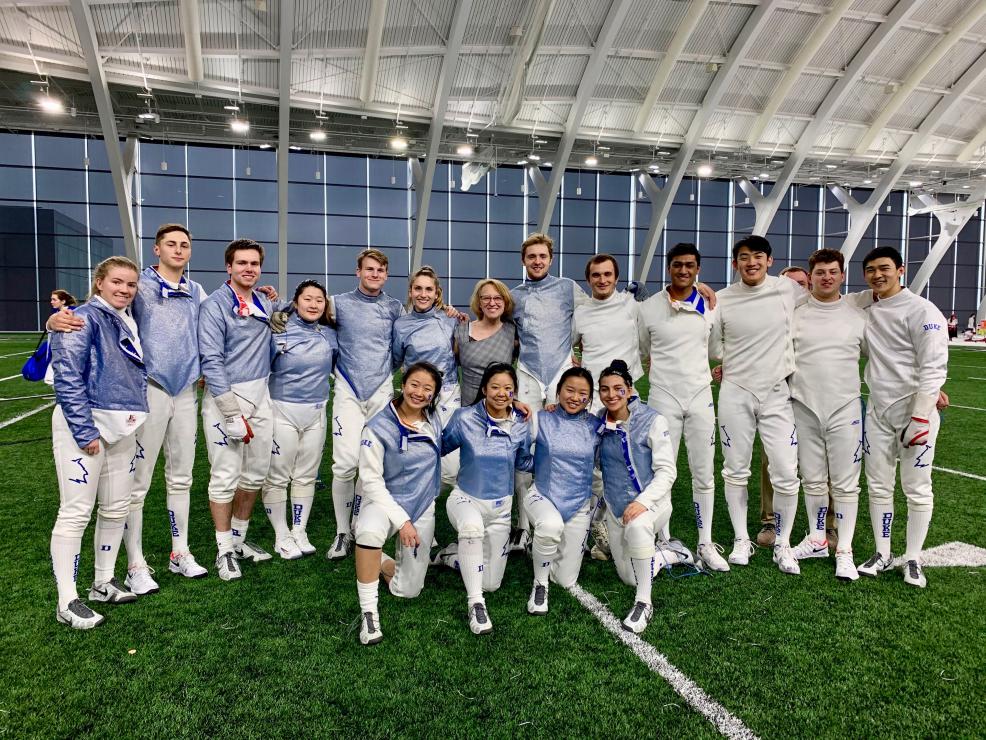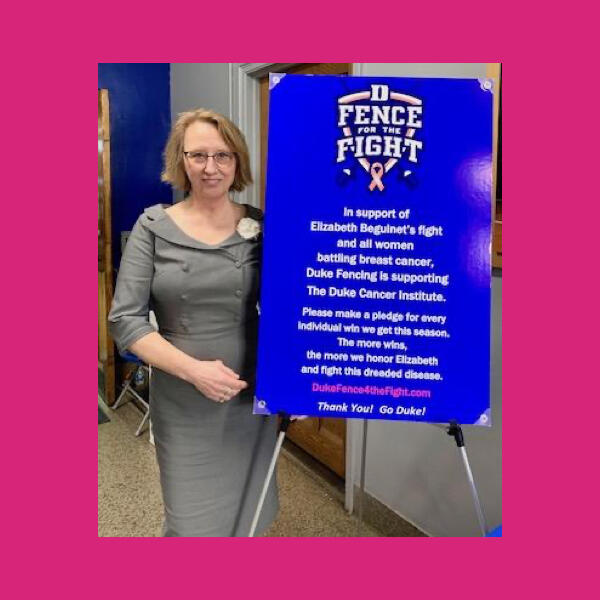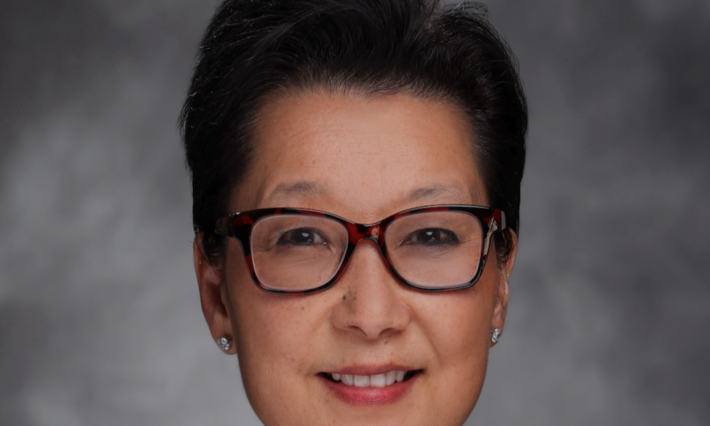In September 2016, beloved long-time director of administration and recruiting for Duke Fencing, Elizabeth Beguinet, was diagnosed with breast cancer. Shortly thereafter, she learned that the cancer had spread to her bones.
Shock, and no small amount of fear, rippled through her tight knit family — from her husband, Duke Fencing head coach Alex Beguinet, to their daughter Heather, a Duke alum, to Elizabeth’s sisters and extended family — all of them recognizing that, with stage 4 cancer, she was in the bout of her life.
Scans scheduled ahead of her first chemotherapy treatment revealed several metastases in her hip (in the ilia of the pelvis) and on her spine, which spurred Elizabeth’s oncologist Kimberly Blackwell, MD, to revise the original chemotherapy drugs to ones more in line with the now stage 4 diagnosis.
Two days after her first chemotherapy, Elizabeth and her daughter flew to Hawaii for a long-planned vacation to Hawaii with her sisters. Warned that the chemotherapy would cause her to lose her waist-long hair, she cut it to shoulder-length before the trip. While there, it began falling out.
Elizabeth and Alex waited several weeks — until the fencing season was over — to tell colleagues and the fencing program students and parents about Elizabeth’s cancer. When they did go public with the news, they were touched by a flood of cards, e-mails and phone calls of support.
After a year of chemotherapy, the sudden growth of one of the tumors necessitated a revised plan to include lumpectomies and removal of several nearby lymph nodes, followed by six weeks of radiation to the lumpectomy and node-removal sites.
Some of the student-athletes came to sit with her during intravenous chemotherapy treatments — the roles temporarily reversed for the “team mom,” as they called her, who was so accustomed to being their cheerleader and shoulder to cry on.
A special video tribute created for Duke Athletics at the end of 2017 — The Spirit of Beguinet — had Elizabeth tearfully reliving her first year of treatment, with Alex by her side. Alex said, proudly, that she “took the bull by the horns.” He admired her strength and positivity. He couldn’t be sure that he’d have handled it quite the same if cancer had happened to him.






